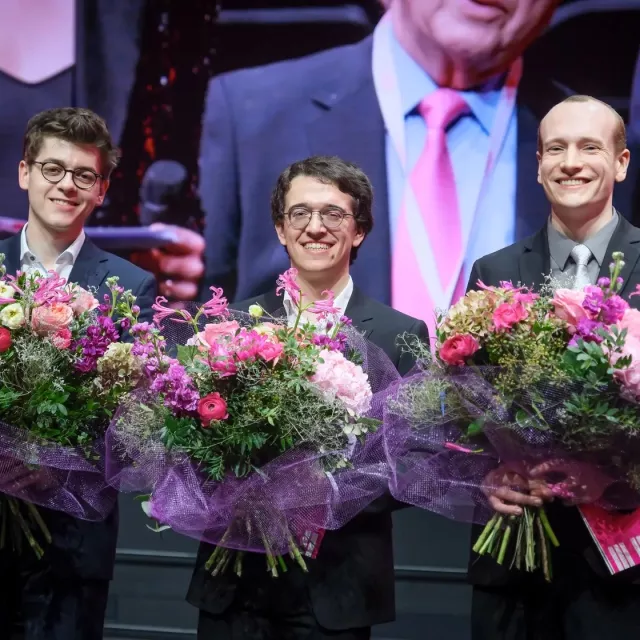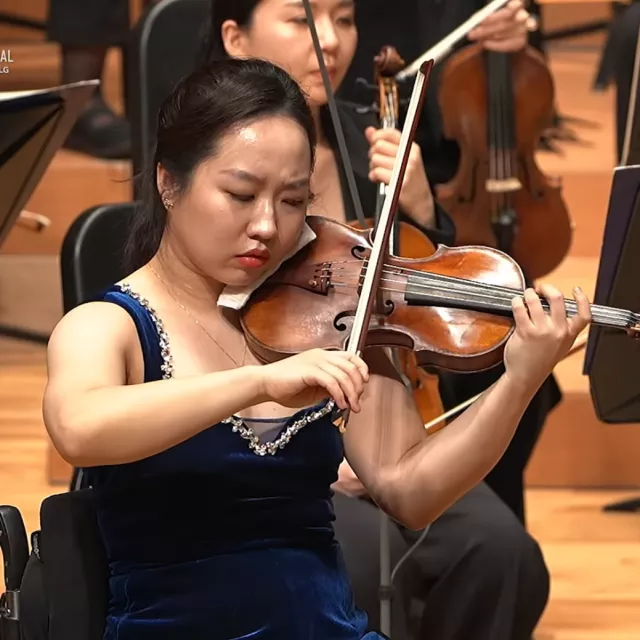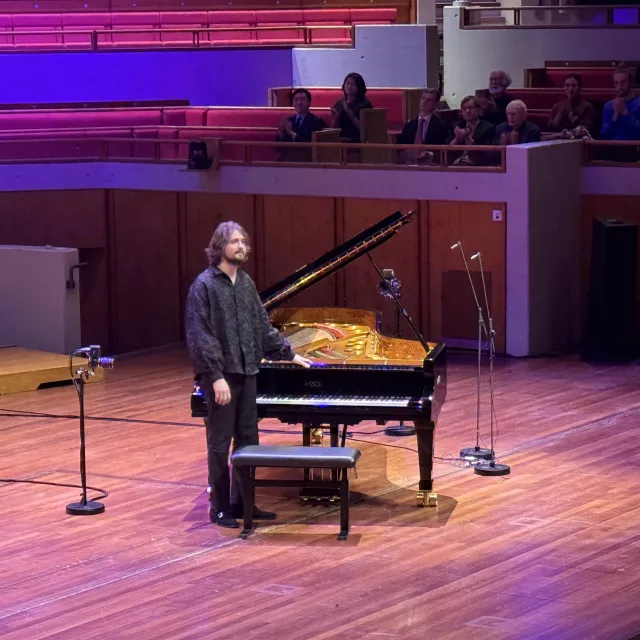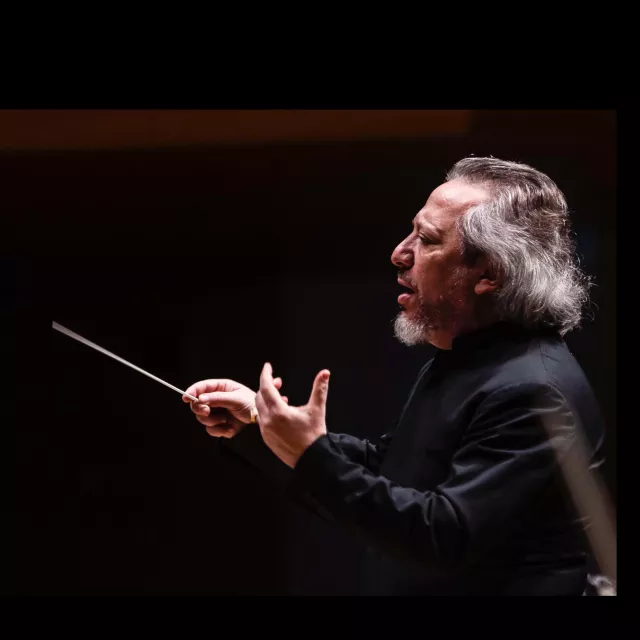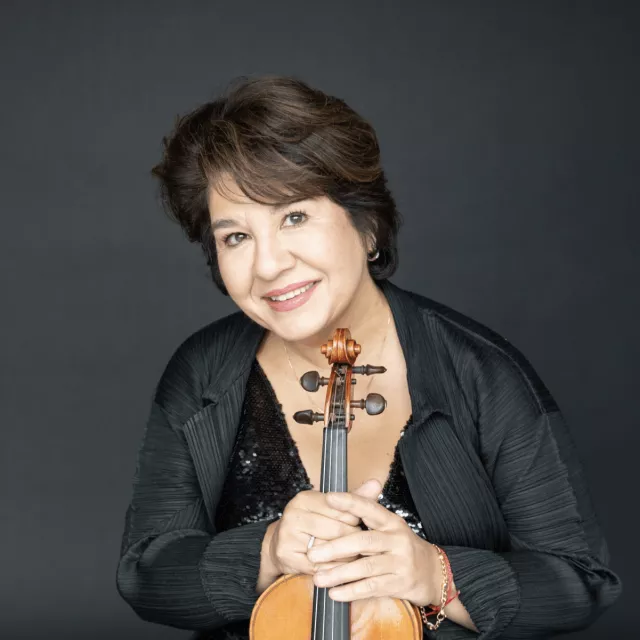Professional Listener

Eleonore Büning, one of Germany´s most respected Music Critics, talks about the Joseph Joachim Competition, about pole-jumping, and why she would always award a First Prize
Born 1952, Eleonore Büning was a music journalist at Frankfurter Allgemeine Zeitung from 1997 to 2017, well known for her opera reviews. She also wrote for Weltwoche, Die Zeit, and taz. She is the author of several books and a frequent guest at international competitions. WFIMC spoke to her during the 2021 International Joseph Joachim Competition in Hannover, Germany.
WFIMC: Mrs Büning, how important are competitions today? Are they still keeping up with the times?
EB: Yes, absolutely! In my secondary career as a competition juror in all kinds of disciplines I have learned one thing: for intelligent young musicians, a competition can be a really good thing. It will help them develop further, even if they drop out in the first round. Competitions mean discourse, contradiction, fun. They mean: learning new repertoire, develop your own program, practice, practice, practice, at long last really listen to others, train self-confidence and self-presentation. Learning to say „no“. Establish new contacts.
Unfortunately, the results in music competitions are not worth half as much. The first is never or rarely the best. This is different from pole jumping- it´s more like at university appointments: usually a compromise candidate wins. Oh well.
The jury is trying hard. It´s no piece of cake to listen to the „Italian Concerto“ fourty times in a row and maintain what level of sanity you can.
WFIMC: But still, you keep coming to competitions...
EB: I am turning 70 next year, and I have been doing this for a few years, but I enjoy doing it. I enjoy doing it, because working in a jury always meant time out for me from the hamster wheel of being a music critic- where I have to write on a different subject every day, always with a healthy superficiality. One day it´s Monteverdi, then Schönberg, and always it has to be quick, and always there is a deadline looming. In competitions I stay focussed on one thing..... on the Italian Concerto, for example. Or on the Bach Partitas. Or on Brahms Violin Concerto. It´s good for me, for my ears, it´s good for my heart and my brain, and I keep learning. It´s very helpful for me to listen to the same piece 20 times in a row. It is helpful for me to listen to young artists. And it is always educative to be together with a jury, with luminaries who are somewhat professionally blind and always have to talk about certain problems of their instrument. In my experience, no jury in this world is ever completely satisfied with their work. Everyone is always unhappy, because there are always things going on behind your back. People go to dinner together, have a coffee, and even though there are strict rules and teachers may not judge their own students, I have never seen a jury that was not dissatisfied with the results. That´s normal, that´s democracy. You should know that as a candidate: you should know that not necessarily the best will win. But you should also know it as a juror, in order to stay friends with the jury. And this is sometimes not easy- of course every musician has convictions, has his own poetics, her own aesthetics. You wouldn´t teach your students something that you are not completely convinced of. You give everything: passion, experience, knowledge. And of course its important to fight and argue for these convictions. So, why prohibit teachers from judging their students? This is a question- I don´t know.
But on the other hand, as a “professional listener” I have to say: I listen to music every day and have to judge: this is my profession. I also have my principles, my aesthetics. I also have a certain experience with listening, and I might value completely different things. And me too I cannot avoid being terribly sad after a competition- whether I am in Zhuhai or in Hannover. But such is life, and that´s why I still keep doing it sometimes.
WFIMC: Yesterday, you could see only grey hair in the audience…. are younger people only listening and watching online? What does that mean for the young musicians? Is streaming becoming so important that careers are only made on the internet? Don´t we need to grow a local audience as well?
EB: Don´t be misled by your impression. The grey-haired audience is caused mainly by Corona: only 130 can be admitted instead of 500. Those 130 are seated with lots of space in between, and many have not been able to get a ticket. The audience mainly consists of host families- you can´t refuse to give them tickets to listen to “their” candidates. There are also sponsors, press, agents. It´s not a regular audience this year. But Oliver Wille and Antje Weithaas, the Artistic Directors, try to balance this with their education program. Up on the balcony- maybe you couldn´t see this- we had lots of school kids all the time, in every round. So if you balance the 10-year olds up there with the 80-year olds downstairs, you will end up with a nice average age I think.
Unfortunately you have the problem in most competitions that everyone who drops out will leave the competition right away. Maybe you have 50 candidates in the first round, 30 drop out, and they will depart right away. Somehow you can´t stop this. But I think competitions should take care and make them stay, give them an offer they can´t refuse, so that they stay, and listen. This would be fabulous. They should not only get a hotel, and meals, but they should also have an opportunity to perform chamber concerts and earn money. You see- they have not just arrived at the competition, they have prepared for a long time, have sent a video, and have qualified. So it would be great to have an outreach program on the side, where every candidate gets 2 performances- paid performances- to present himself/herself to an audience. They would feel much more appreciated, and they would have a chance to listen to each other. And we would get away from this pole-jumping way of thinking.
WFIMC: But they have managed this quite well at the Joseph Joachim Competition, no? There actually is an outreach program….
EB: Yes. But most of the candidates have left anyway. It´s not an outreach program that includes the candidates from the first round. The first round has departed completely, and there were many extraordinary musicians who could have won a price. But to change these structures, which obviously are understandable, you should set up competitions differently.
I think this would benefit a lot of people. The Deutsche Musikwettbewerb in that sense is exemplary, because many candidates stay until the end. They have a large number of special prizes which mean a huge effort on the side of the competition, but which also mean that even if you are not among the first three, you still have a chance to win something. Even if you are rank 10 or 11, you might still get 2000 Euros, or a performance somewhere. There are 20 or 30 special prizes, and they are also awarded by the jury.
In addition, they have the Bundesauswahl junger Künstler (selection of young artists). If you are among the last 20 or 25, you have a good chance to be selected for this program. They will take care of you for 2 years, will offer coaching and seminars: how to get a website, how to look for an agent, how to deal with music critics (laughs)….. They get concerts, and these concerts are paid for in part by the Deutsche Musikrat (German Music Council), meaning that promoters are encouraged to hire these young artists, because they can save money. A nice trick, but it works! So this competition will not only help its winners, but will also support the others and their careers.
WFIMC: As a “professional listener”, what does streaming mean for you?
EB: Well, streaming does not only concern competitions, but rather the entire music business. Will the audience stay away because it can watch an opera at home? Why do you still need a subscription? This is a huge subject, maybe too big for this interview. But to be honest: a live performance cannot be replaced by anything. There will always be live performances, even in 100 years, and the two might run parallel, they will complement each other, and both sides will profit from each other. But I don´t think it will be cannibalized.
We will have to find different ways to deal with film. We really need movie directors to make music videos, to develop ways for music videos. There is a lot to be done! We still make music videos like Karajan 60 years ago. But there are so many possibilities in the digital world which we still need to discover, and for which we have to find ways how to use them.
During the pandemic, I have reviewed two digital opera premieres, without really wanting to do it, but afterwards I decided not to do it again. It´s like pouring a can of tomatoes on your spaghetti- no way! I don´t want to write about an event that has been filtered several times. What kind of journalism is that: during the performance, I can turn down the volume, I can go to the fridge to get myself a drink, I can turn it off…. I can´t do that in an opera house or concert hall! Music is alive and has to stay live. I need everything, not small bites, and I don´t think a competition can or will be replaced by something digital. I have taken this stance publicly: I am not a movie or video critic.
As a juror, it´s somewhat different: I have always watched the stream of the Joachim Competition, because the camera makes things visible which you cannot see as a listener in the concert hall: body language. But the whole thing is a huge issue, for which we don´t have an answer today. And we have to try it!
WFIMC: As a juror, how do you judge candidates if they perform completely different repertoire?
EB: Here at the Joachim Competition, we have a “Carte Blanche” recital on the program of the semifinals, where the young musicians can choose their own program. It has to be related to the subject Heimat (Home), but it´s up to them if they play Schubert, or a new piece from their friend composer “who lives around the corner”. Such a program can be purely classical, or completely contemporary. The musicians are being challenged to use their brain and think about what they do- beyond the technical issues. Not a bad idea. But often the results are disappointing, because you can see that “no one is at home up there”. On the other hand, you can find out about the way people think! A good idea, and anyway only one tool in this competition. Besides, both parts of the semifinal (Mozart Concerto as well as the Carte Blanche) are being evaluated as one, not separately.
WFIMC: How important is it for you to award a first prize?
I have always pleaded to give one first prize, not two second prizes- this is all nonsense. It only shows the inability of the jury to take the plunge and decide. You have to be able to decide, you have to be able to reach a compromise. As a juror, you always have the situation: “I cannot live with the fact that I award an artist who doesn´t reach my ideals”. Or “I have given my name as a juror and I feel personally responsible”. This is nonsense, because you completely shrug off your responsibility.
Or the argument “no one is good enough for a first prize, let´s give them two second prizes”: it always shows the inability of the jury. The jury damned well has the duty to nominate winners. And this includes- like in any democracy- to accept compromises with other opinions. To listen to what others think. The reality unfortunately is different, and I think it’s a really bad habit- I think its just wrong.
As Artistic Director I would try to enforce a rule that a first prize must be given. Otherwise you don´t just discredit yourself as a jury, you also discredit the participants, and the competition!
Music has a lot to do with being humble, with seeking compromises….
DISCLAIMER
All opinions shared by the interviewed person are of their own and do not purport to reflect the opinions or views of the World Federation of International Music Competitions. The designations employed in this publication and the presentation of material therein do not imply the expression of any opinion whatsoever on the part of the WFIMC.
©WFIMC ©JJIV


